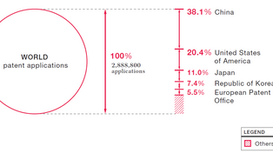How is the ownership of a commissioned work determined?
- Admin
- May 16, 2023
- 1 min read

When one person commissions or invests in a work that is eligible for copyright protection, it is generally expected that the agreement between the parties will be honoured based on the principle of "freedom of contract." Typically, the investor will have the advantage in negotiations and seek to obtain ownership of the work through the agreement. However, if no binding agreement is in place, international practice suggests that the investor may still be considered the copyright owner. In some countries, such as China, if no agreement is reached, the copyright belongs to the author. It is essential to consult national law to determine if the person commissioning the work also has moral rights in addition to economic rights. In some jurisdictions, contracts cannot override the author's moral rights. However, as many countries prioritize mutual agreement and copyright awareness is increasing, it is rare for the parties involved to neglect to enter into an agreement, making this issue relatively uncommon in practice.





















Comments